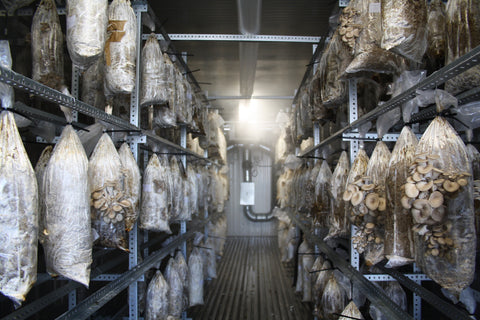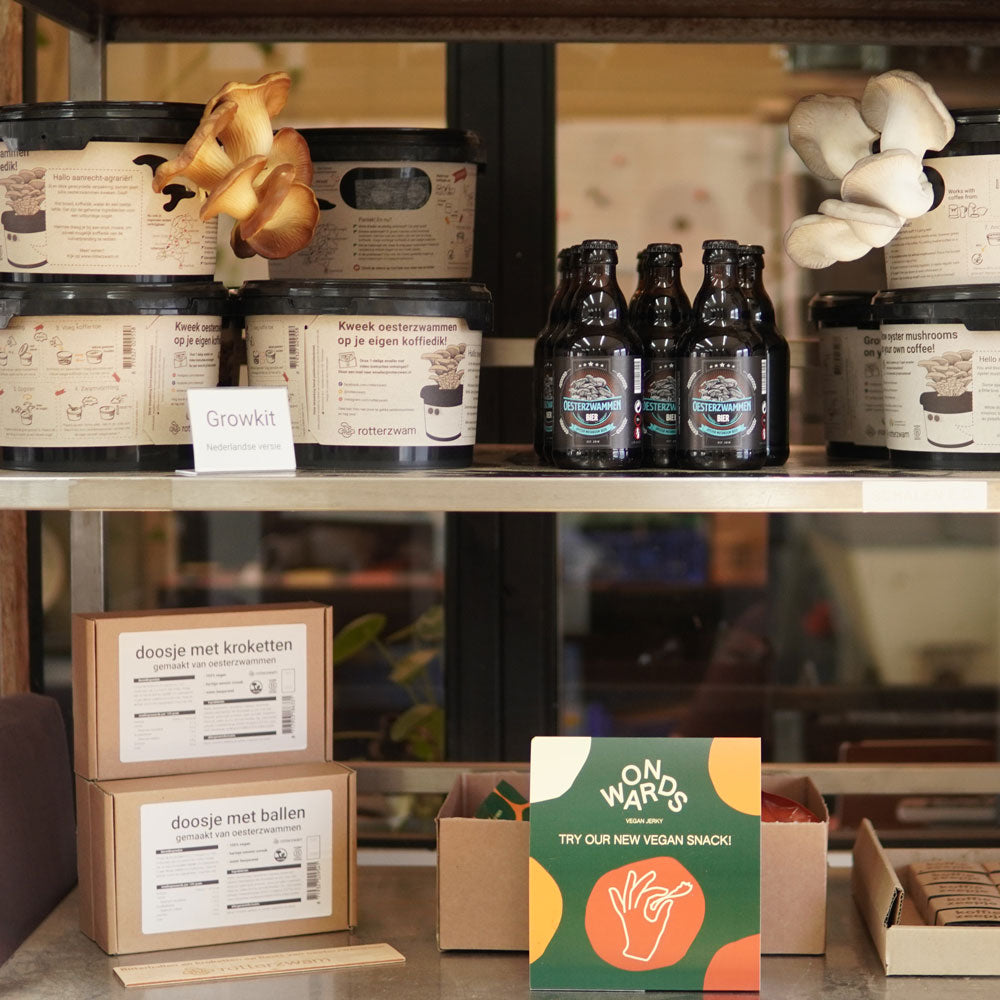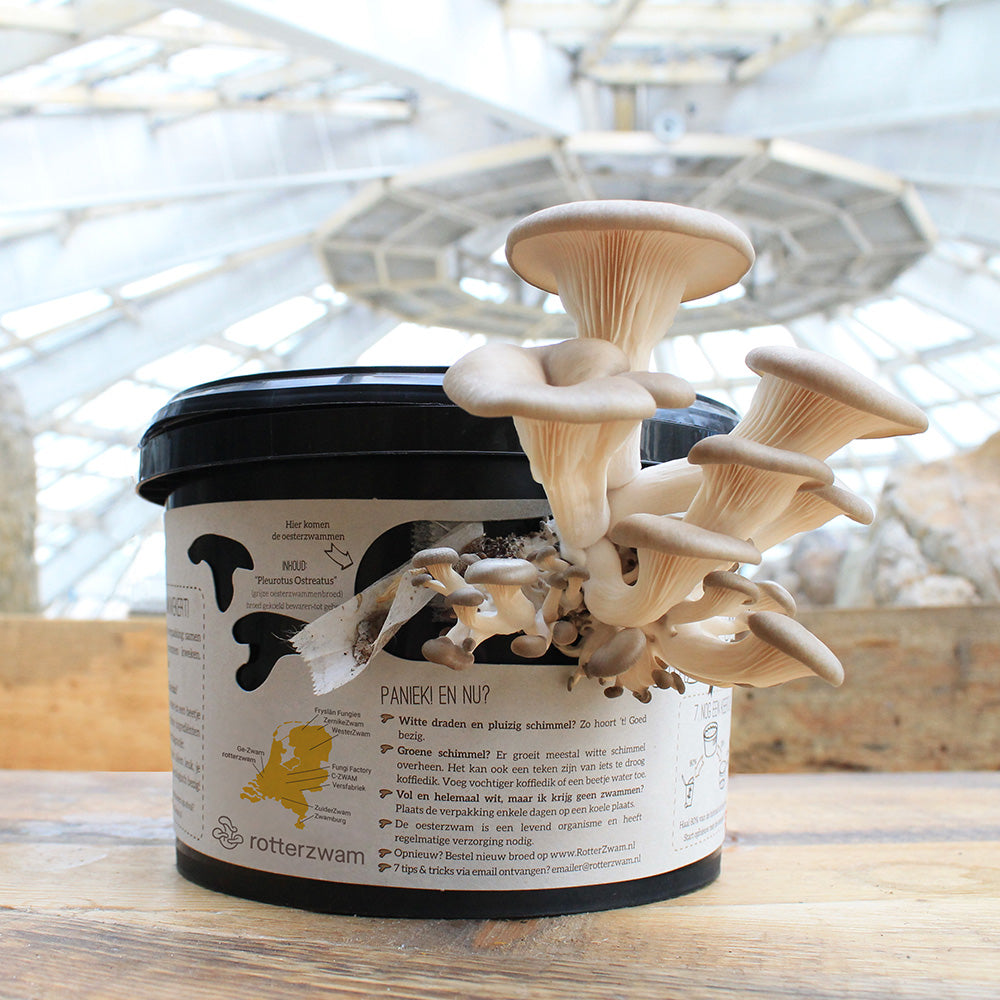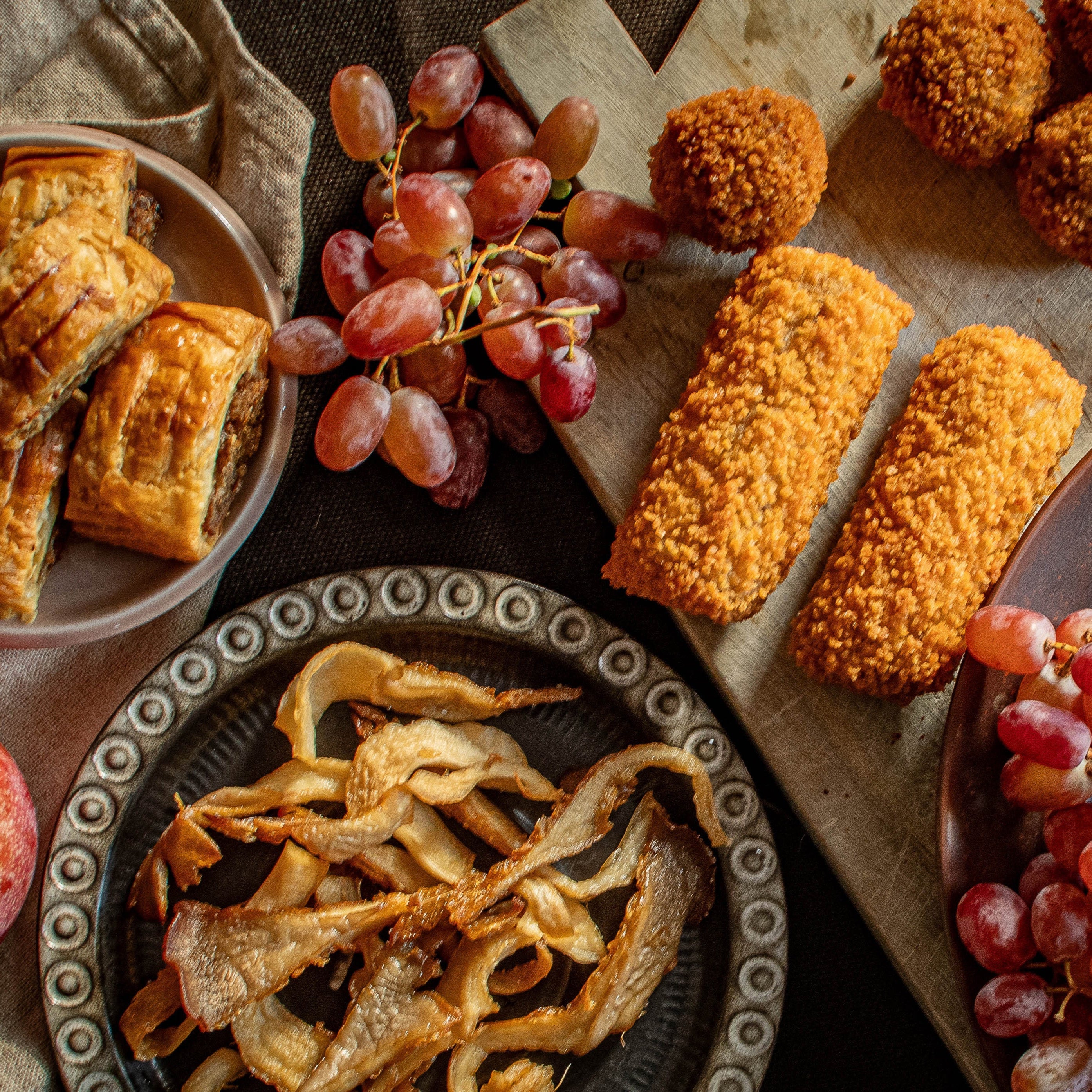the why of rotterzwam
The founders' why
Siemen Cox and Mark Slegers are the founders of rotterzwam. Siemen has a background in financial services, and Mark Slegers has worked in IT and the energy sector.
After 15 years of working in a corporate environment, both men hung up their ties because they no longer felt connected to the industry. They were also searching for meaning in their work and wanted to contribute to a more sustainable society .

Both were inspired by the ideas of Gunter Pauli, author of the book "The Blue Economy." It outlines more than 100 business cases for things you can do with waste. Growing mushrooms on coffee grounds is one example.
In his book, Gunter explains THAT you can grow mushrooms on coffee grounds, but not HOW to do it. When we approached growers for help with this process, we found many closed doors. With the support of a grower from Belgium and Ivanka Milenkovic of Ekofungi in Serbia, we managed to start a small farm. To help prevent other growers from having to reinvent the wheel, we developed the Mushroom Master Program . In it, we share all the knowledge needed to start a farm based on open source.
The goal of rotterzwam is to establish and then replicate a business model that has an economic, ecological, and social profit model.
The why from society
Have you ever heard of Earth Overshoot Day ? On this day, we've used more resources than the Earth can generate in a year. Our generation's moon landing is about getting our economy and lifestyle within the limits of our planet. If everyone on this planet lived like the Dutch, we would need 2.9 Earths. But if we have a shortage of resources, why do we burn valuable materials like coffee grounds? We could do so many wonderful things with them, like growing food.
Reducing global CO2 emissions is a huge challenge. The amount of CO2 in the air is still rising. To reverse this, companies would have to become carbon negative by capturing more than they emit. Rotterzwam saves coffee grounds from incineration, processes them into oyster mushroom substrate, and then delivers them to farmers who use them as a soil improver.
Food miles have become serious distances. The average plate of food has easily traveled 10,000 to 15,000 km. In the worst-case scenario, even 60,000 km. Your coffee beans might come from Kenya, your wine from South Africa, and a steak from Argentina. The additional CO2 emissions released during transport for a bottle of wine from Chile versus France can be as much as 2 kilos! Rotterzwam closes the loop from raw material to product to consumption in 55 km. More than 90% of the coffee grounds we collect come from Rotterdam.
The why of rot fungus
Rotterzwam believes in a society that closes cycles, makes maximum use of raw materials and consumes more vegetable than animal proteins.
We do this by collaborating locally, regionally, and internationally to stimulate and facilitate the production of mushrooms from local waste streams.
The result is a wide range of products and services related to mushroom production, awareness and delicious snacks based on vegetable proteins.
The nursery 1.0
On May 22, 2013, our first activities began at the Tropicana. In the cellars of the old beauty salon, situated in the basement of the abandoned swimming pool, we gave workshops and grew our first mushrooms.

Around April 2017, we were growing about 250 kilos of oyster mushrooms per month. We were increasingly having to turn them down, and we decided it was time to scale up.
The big question was whether we would do that at Tropicana [now called BlueCity] or elsewhere. A small but intense fire destroyed our nursery and answered that question. It became [function] elsewhere. ;-)
The nursery 2.0
On May 24, 2019, we opened our new farm in the Schiehaven district of Rotterdam. In eight used reefer containers, we can convert a maximum of 6,000 to 7,000 kilos of coffee grounds into 1,200 to 1,400 kilos of oyster mushrooms per month.

Our new nursery is an experience center where you can see and experience the circular economy in action. We're happy to share our knowledge and experience and regularly organize tours for schools, business networks , open days, and workshops .
You can also see our growing containers in action. Our growing containers are optimized for mushroom cultivation and are available for sale and rent.
Alle emails op een rijtje
Kan je niet wachten om alle emails opgestuurd te krijgen, en wil je graag alle informatie van tevoren op een rijtje hebben? Daarvoor hebben we hier een overzichtslijst met alle informatie voor je neergezet.
introductie & benodigheden
Nederlandse versie
English version
De eerste laag koffiedik en mycelium
Meest voorkomende problemen
Opnieuw opstarten



